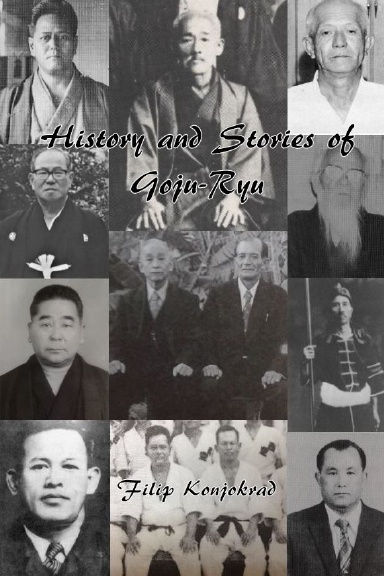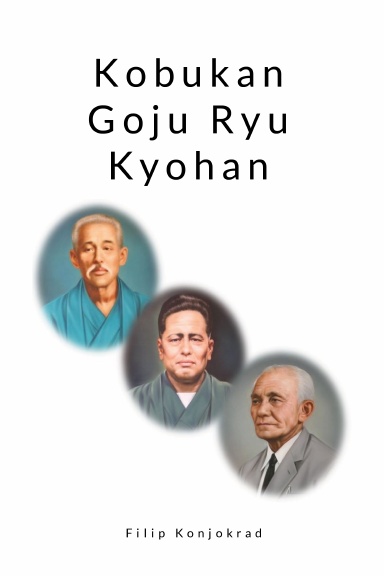Statutes of the Karatedo History Research Society (K.H.R.S.)
PART ONE
DESIGNATION, OBJECTS,
HEAD OFFICE, RESOURCES, DURATION
ARTICLE 1: DESIGNATION
The designation of the association is: Karatedo History Research Society (KHRS).
ARTICLE 2: OBJECTS
K.H.R.S. will develop its activities in Portugal and all over the World.
This Association declares itself independent and apolitical to all effects, even though its collaboration with the Japanese Karate Federation and the National and International Karate Federations be much closed, the disposition of which is based without reservations of any type, and from what awaits once a fruitful cooperation.
The aims of the present association are:
The promotion of research, education, training, information, divulgation in all fields which are of interest to or concern Karate History, as well as the cultivation of statistics and history of any higher level (worldwide, European or any other class).
To promote the publication of national and international magazines and books, masters and schools, men and women, in different Kai-Ha. Likewise, the Society will affect the collection of all historical data with the largest possible range (National Championships, reconstruction of annual lists of the oldest possible, chronology of all kinds of styles, etc ...).
To avoid the loss, destruction or dispersion of particular files (magazines, files, etc ...) of colleagues who have disappeared or withdrawn from statistical activity.
K.H.R.S. expresses its willingness to receive donations of material from this class, as well as one of its functions in the case of producing donations, their classification and maintenance with a view to their later use.
ARTICLE 3: REGISTERED HEAD OFFICE
The registered head office of the association is in Lisbon, Portugal.
This registered head office may be transferred to any other place on simple decision of the board of directors.
ARTICLE 4: RESOURCES
The association's resources consist of:
Subscriptions paid by fellows and associate members; the amount of this subscription is fixed by the board of directors. The subscription is payable by each member every three years, during the first month of the new three-yearly period.
Contributions of any kind or sum, paid by members.
Grants from any public or private establishment.
Sums received in return for services or sales of products realised by the society.
Products and income from possessions of value belonging to the society.
Any other legally authorised resources.
ARTICLE 5: DURATION
The association is created for an indeterminate duration.
PART TWO
FORMATION, MEMBERSHIP
ARTICLE 6: MEMBERS OF THE ASSOCIATION
The society is open for admitting worldwide colleagues as fellows, associate members, and honorary members.
Fellows may be those with published work on Karate History who fulfil the conditions provided for in the present Articles of Association; they have voting rights at general meetings they can be members of the board of directors and they pay to the society the subscription determined by the board of directors.
Associate members may be those willing to commit themselves with the objectives and statutes of the society without published work on Karate History. Associate members can participate in general meetings, but do not have voting rights; they cannot be a member of the board of directors. They pay the society the subscription determined by the board of directors.
Honorary members are those who may not fulfil the conditions to be active or associate members of the society, or who do not wish to become such members, but who wish to give moral, political, financial, material or any other support to the association. Honorary members can participate in general meetings, but do not have voting rights; they cannot be a member of the board of directors, but, at the request of the board, they can have a consultative voice. Furthermore, honorary members are exempt from paying any subscription.
Will be considered members of the K.H.R.S. all those who, prior to of April 1st, 2020, express intention to be admitted at the society in written from. As this date, formal written request is essential to be considered admission.
ARTICLE 7: CONDITIONS OF ADMISSION OF NEW MEMBERS
For admission as Fellow, the following conditions must be met:
Agree with the aims of the Society; Be a natural person; Have published work in the field of Karate History; Be an applicant; Pay the subscription; Fill the form available at the website.
For admission as an Associate member, the following conditions must be met:
Agree with the aims of the Society; Be a natural person; Be an applicant; Pay the subscription; Fill the form available at the website.
For admission as an Honorary member, the following conditions must be met:
Be a natural person or legal entity; Be able to bring moral, political, financial, material or any other support to the association; Be an applicant or proposed by the board of directors.
All applicants have to be approved by the board of directors. The board's decisions on the subject are final.
In any case, at the annual general meeting, the board of directors informs members of memberships accepted during the past year.
ARTICLE 8: LOSS OF MEMBERSHIP
Membership is lost:
Through death of a natural person, or dissolution of a legal entity for whatever reason.
Through resignation. Any member of the society has the right to resign; to that effect, the interested party should notify the Chairman of his decision, giving at least one month's notice, by e-mail with acknowledgement of receipt.
Through exclusion pronounced by the board of directors for non-payment of the membership fee, infringement of the present Statutes (or the possible internal rules and regulations), unethical behaviour or on serious grounds. In this case the interested party will have been invited, beforehand, to address before the board of directors to give an explanation.
ARTICLE 9: LIABILITY
No member of the society, even those involved in its administration, is personally liable for the commitments entered into by the said society; only the assets of the association are answerable.
PART THREE
ADMINISTRATION AND OPERATION
ARTICLE 10: GENERAL MEETINGS
The general meetings is the societies’ supreme organ; its decisions, taken regularly, are binding on dissidents and absentees who have not sought representation. It consists of all the members of the association.
As a general rule, members are invited to attend a general meeting at least once a year and, each time that the interests of the society call for such a meeting. It will be held by means of internet through some software (Skype, WhatSapp, Messenger ...) that allows communicating to all its members.
The general meeting is called upon President's initiative. However, the board of directors can, on majority of its members, decide to call a meeting; in the same way, the meeting can be regularly called, following formal request coming from at least 25% of the active members of the society.
Written notification, accompanied by the agenda, is sent to every member, at least 30 days before the meeting. Any useful information concerning the general meeting thus assembled, will be held at the disposal of each member.
Each active member only has one sole vote. Every active member can be represented by another active member, in the knowledge that one member cannot have proxy to more than two members.
The absent members can carry out any proposal sent by e-mail sent to the Society board addressed to the general secretary, at least five days before the Convention.
Only this general meeting will have the power to modify the Statutes and dissolve the Society.
ARTICLE 11: BOARD OF DIRECTORS
The society is run by a board of directors made up of 5 members elected for four years by the ordinary general meeting.
Elections will be held in the last quarter of each Olympic year and the Committee will remain in force for the next four years.
The board of directors is composed of a Chairman, a Vice Chairman, a General Secretary and two Members.
Any member of the board of directors can resign, on condition that he notifies the Chairman of his decision, giving three months' notice, by e-mail with acknowledgement of receipt.
In the event of a post being vacant, the board of directors temporarily provides for the replacement of its members; permanent replacement is conducted at the next general meeting, but powers of members elected in this way come to an end at the time when the mandate of the replaced member would normally have expired.
The members of the board of directors are elected by list system and will be sent to the President at least two months before the ballot and will be appended to the written notification to attend the general meeting.
The list who has obtained the largest number of votes is elected.
Members are re-eligible.
ARTICLE 12: INTERNAL RULES AND REGULATIONS
Internal rules and regulations can be laid down by the board of directors, which then has them approved by the general meeting.
These internal rules and regulations are destined to determine the various points not provided for by the Statutes, in particular, those related to the internal administration and operating of the association.
All categories of members will abide by these internal rules and regulations, which will be able to be modified by the ordinary general meeting on the board of directors' proposal.
ARTICLE 13: SUBCOMMITEES
The board of directors may deem relevant to create special subcommittees to work on particular topics.
ARTICLE 14: AMENDMENTS
Changes to these statutes can be proposed by any member in writing to the general secretary and will be voted on by the members at the general meeting.
ARTICLE 15: DISSOLUTION
In the event of the dissolution of K.H.R.S., all its assets will be divided into equal parts among its members.
Approved by General Assembly, 10-04-2020
The KHRS Board








